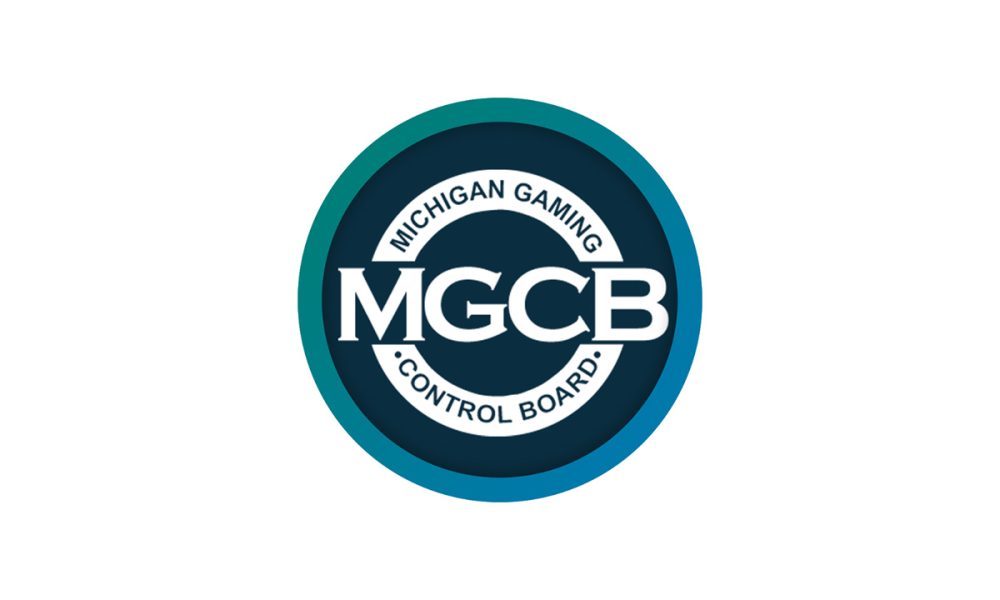

Compliance Updates
EGBA: Finland’s New Gambling Legislation: A Step Forward, With Room For Improvement
Finland’s proposed change to its online gambling legislation marks a significant milestone in European gambling regulation. Finland is the last EU country with a monopoly system for online gambling, and its shift towards a multi-licensing approach is a positive change. It finally brings it into line with the rest of the EU countries who all already have some form of licensing framework for online gambling.
Maarten Haijer, Secretary General of European Gaming and Betting Association, said: “At EGBA, we support the newly proposed legislation, which we’ve advocated for years. Experience shows that a monopoly doesn’t work in the online world, and consumers are best served and protected in a well-regulated but competitive environment, where safety tools such as deposit limits and self-exclusion are made available to players.”
While Finland’s proposal is heading in the right direction, some areas require some fine-tuning to ensure the new licensing framework achieves its goal of ensuring Finns play with locally licensed websites.
Maarten Haijer said: “For starters, the proposed marketing restrictions, especially the ban on affiliate marketing and social media advertising, might backfire. These channels play a key role in guiding consumers to licensed, regulated platforms. Without them, players will drift to black market websites that don’t follow Finnish regulations or prioritise consumer safety.
“Also, the proposed blanket ban on bonuses is concerning. While we support setting boundaries on bonusing, a complete prohibition will simply make any newly licensed operators less competitive against unlicensed ones. This risks pushing players towards unregulated sites, undermining the very consumer protections the legislation aims to establish and strengthen.”
He added: “In our response to the government’s recent consultation, EGBA suggests two key improvements: Bring affiliates into the regulatory framework and allow social media advertising under clear rules. Both are valuable tools for channelling players towards licensed operators. By implementing clear guidelines, such as mandatory safer gambling messages, Finland can harness the power of these marketing channels while maintaining high standards of consumer protection.
“Instead of banning bonuses outright, implement guidelines for their responsible use. For instance, a nuanced approach could involve prohibiting bonuses for players showing signs of problematic behaviour, or setting clear rules on when and how bonuses can be offered. This strategy would allow operators to compete more effectively with unlicensed sites who will undoubtedly use bonuses to try to entice Finnish players away from regulated websites.
“These changes would better align Finland’s approach with the successful models seen across the EU, striking a balance between market competitiveness and robust consumer protection.
“Transitioning to a licensed market is no small feat, but it’s one that ultimately benefits everyone involved. At EGBA we are ready to share our expertise and support Finland in creating a well-regulated, competitive, and safe online gambling market.
“Finland stands at a pivotal moment in the history of its gambling regulation. By crafting a successful online gambling framework, Finland, like its neighbours Denmark and Sweden, can successfully transition from its monopoly to a well-functioning licensing system. Denmark’s transition to multi−licensing in 2012 led to a significant improvement in online channelisation, reaching well over 90 per cent. Sweden has seen similar improvements.
“Addressing the concerns about marketing restrictions and bonus regulations is crucial to ensure the new legislation achieves its objectives, safeguarding Finnish consumers while fostering a healthy, well-regulated online gambling environment.”
The post EGBA: Finland’s New Gambling Legislation: A Step Forward, With Room For Improvement appeared first on European Gaming Industry News.
Australia
AUSTRAC Intelligence Helps Crack Gold Laundering Case Linked to Gambling

AUSTRAC intelligence sparked an investigation that helped the Law Enforcement Conduct Commission (LECC) to uncover a NSW police officer who sold more than $1.3 million in family gold bars to fund a gambling addiction.
The officer was found by the LECC to have engaged in serious misconduct after taking 12 gold bars, weighing 50 ounces each that belonged to his uncle and was stored underneath his mother’s house.
He falsified know your customer forms to sell the bullion to 2 dealers, claiming the gold was a birthday gift or inheritance and then he used the proceeds on sports betting apps and later admitted to the false information stating he “needed the money”.
AUSTRAC first raised the alarm by flagging transactions, including significant gold sales to a bullion dealer with reported money laundering links.
Operation Dartmoor was launched and uncovered the full extent of misconduct.
The officer resigned from the NSW Police Force and has been referred to the Department of Public Prosecutions.
AUSTRAC CEO Brendan Thomas said the case highlights the risks facing the bullion sector.
“Gambling harm doesn’t just drain bank accounts, it can drive desperate people into crime,” Mr Thomas said.
“When gambling turns to addiction, people often look for fast money and that can mean stealing, fraud or money laundering.
“Bullion is portable, valuable and attractive to people wanting to use it illegitimately.
“If you trade in bullion, you are part of the front line in stopping its exploitation.
“Your AML/CTF controls are the difference between being a trusted dealer or a weak link for crime.
“Every transaction is a potential red flag – it’s your responsibility to look twice, and if needed, report it.”
The post AUSTRAC Intelligence Helps Crack Gold Laundering Case Linked to Gambling appeared first on European Gaming Industry News.
Betty Wins
MGCB Orders Four Offshore Online Casinos to Cease Operations in Michigan

The Michigan Gaming Control Board (MGCB) has issued cease-and-desist letters to four unlicensed online casinos—Betty Wins, Orbit Spins, Pacific Spins Casino, and Yabby Casino—all operated by Tech Zone Inc., a company registered offshore in the Union of Comoros.
The enforcement action is part of the MGCB’s ongoing commitment to protect Michigan residents from illegal gambling platforms that lack oversight, player safeguards, and responsible gaming protections.
“These offshore operators lure players with flashy ads and promises of big winnings, but in reality, they put consumers at serious financial and personal risk. We will continue to take strong action against unlicensed sites to ensure gambling in Michigan is legal, fair, and secure,” said Henry Williams, Executive Director of MGCB.
Under Michigan law, only MGCB-licensed operators are authorized to offer internet gaming and sports betting. Tech Zone’s four brands were found to be illegally targeting Michigan residents, violating the Lawful Internet Gaming Act, the Michigan Gaming Control and Revenue Act, and sections of the Michigan Penal Code.
“Illegal operators may use familiar branding or social media ads to appear trustworthy. But if the site isn’t licensed by the MGCB, it isn’t safe. We encourage all players to check before they bet,” Williams said.
The post MGCB Orders Four Offshore Online Casinos to Cease Operations in Michigan appeared first on Gaming and Gambling Industry in the Americas.
Compliance Updates
CT Interactive grows its certified portfolio in Romania

CT Interactive is strengthening its presence in Romania’s regulated iGaming market by certifying 20 new games, bringing its total portfolio in the country to 101 titles. This is a significant achievement in the company’s European growth strategy.
Among the new certified releases are fan favorites such as Lucky Clover 10, the latest addition to the beloved Clover series featuring vintage-inspired graphics and nostalgic design elements, and 20 Mega Star, a classic fruit-themed slot that combines familiar gameplay with modern visuals to keep players engaged. Both titles have already proven their success across multiple international markets with strong player engagement.
Additionally, CT Interactive is launching its new Buy Bonus product line in the Romanian market. This exciting lineup includes Doctor Winstein Buy Bonus, Duck of Luck Buy Bonus, Fruits & Sweets Buy Bonus, Nanook the White Ghost Buy Bonus, and Hyper Cuber Buy Bonus — all offering thrilling bonus features and enhanced gameplay tailored to local player preferences.
“Certification in Romania is an important part of our European growth strategy,” said Martin Ivanov, COO of CT Interactive. “This expansion not only strengthens our presence but also enables us to offer a diverse and premium range of content to the regulated Romanian market.”
With these new certifications, CT Interactive continues to be a trusted provider of engaging gaming content, offering Romanian operators a broad range of advanced titles fully aligned with local regulatory standards.
The post CT Interactive grows its certified portfolio in Romania appeared first on European Gaming Industry News.
-

 gaming3 years ago
gaming3 years agoODIN by 4Players: Immersive, state-of-the-art in-game audio launches into the next generation of gaming
-
EEG iGaming Directory9 years ago
iSoftBet continues to grow with new release Forest Mania
-
News7 years ago
Softbroke collaborates with Asia Live Tech for the expansion of the service line in the igaming market
-
News7 years ago
Super Bowl LIII: NFL Fans Can Bet on the #1 Sportsbook Review Site Betting-Super-Bowl.com, Providing Free Unbiased and Trusted News, Picks and Predictions
-
iGaming Industry8 years ago
Rick Meitzler appointed to the Indian Gaming Magazine Advisory Board for 2018
-
News7 years ago
REVEALED: Top eSports players set to earn $3.2 million in 2019
-
iGaming Industry8 years ago
French Senator raises Loot Boxes to France’s Gambling Regulator
-
News7 years ago
Exclusive Interview with Miklos Handa (Founder of the email marketing solutions, “MailMike.net”), speaker at Vienna International Gaming Expo 2018













